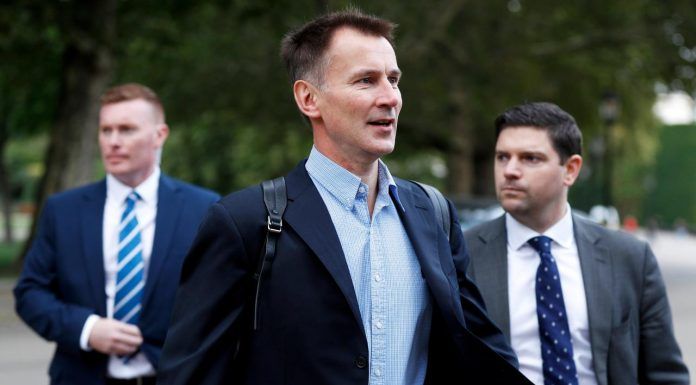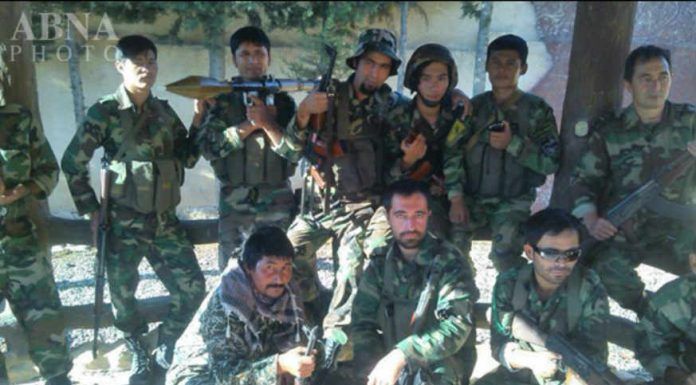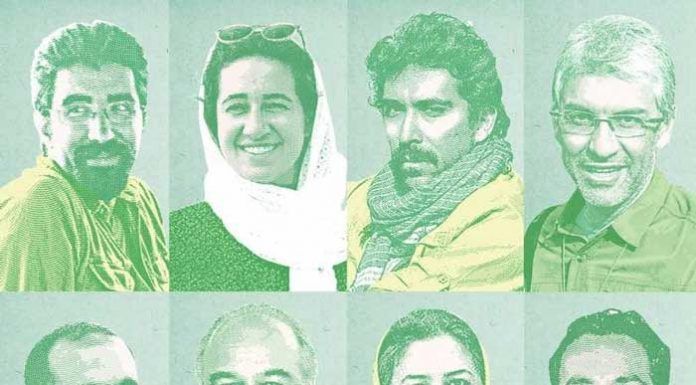By Natasha Phillips
23 Nov – Citizen protests over pay and corruption competed for attention with Iranian officials’ ongoing attempts to secure economic support from Europe this week. Embedded sanctions and Twitter spats between Trump and Iranian Foreign Minister Javad Zarif ratcheted tensions between the US and Iran up a notch. Emerging reports of Afghan child refugees being exploited inside Iran, and a lack of access to basic services for undocumented Afghans inside the country have alarmed the United Nations Refugee Agency (UNCHR), who are calling on the international community to act.
• Monday, Iranian Foreign Minister Javad Zarif was locked in talks with his British counterpart Jeremy Hunt, in a bid to re-energize the nuclear deal. Zarif met Hunt with the secretary of Iran’s Supreme National Security Council Ali Shamkhani, who has the final say on Iran’s State agenda, including nuclear matters. The meeting seems to have gone well according to Iranian Deputy Foreign Minister Abbas Araqchi, who tweeted Wednesday that talks had been constructive. Word on the street is that France, Germany, Russia and China are also keen to keep the deal alive. Meanwhile, Iran’s ultimatum on the agreement remains the same: no financial protections from U.S. sanctions, no deal. As might be expected, the teasing threats between Tehran and Washington continued. An Iranian Revolutionary Guards commander told the semi-official Tasnim news agency that America’s military bases in Afghanistan, the UAE and Qatar, were within range of Iran’s missiles.
→Link to source
• While Iran’s top officials negotiated all things nuclear, nationwide demonstrations kept police in Iran busy. A student sit-in at Babol Noshirvani University of Technology over student accommodation, food and curfews at the start of the week was broken up by security forces, who claim the protests turned violent. Students denied the claims, telling media outlets their protests were peaceful and without incident. No arrests were made. It wasn’t just young people vocalizing their concerns. Workers at the Haft Tapeh Sugar Cane Mill in Ahvaz, southwest Iran, were on their seventeenth day of strikes over pay. Once a source of national pride, the mill has since fallen on hard times. Workers say they haven’t been paid for three months. The growing number of people joining the protest has put this movement on the radar: seventeen workers were arrested and detained, with thirteen of those released on bail. Three strikers remain in custody. Escalating resentment over corruption at the highest level could also be fueling Iranians’ determination to strike.
→Link to source
• Now that the world has latched on to Iran’s alleged corruption problem, Zarif has been unable to shake off his comments about Iran’s widespread money laundering woes. Conservatives, already furious with Zarif for making the comments, are demanding that he produces evidence to back up his claims, or face arrest and trial. A report by the Central Bank of the Islamic Republic of Iran suggests that there are 55 million suspicious bank accounts in the country, with 49 million of these bank accounts having been opened using invalid national ID numbers. Iran’s government is still hoping that Europe will remain committed to a deal but patience is wearing thin. Still not wholly reassured by European efforts just yet, Iran hinted it may look to China and Russia for support.
→Link to source
• If rampant corruption inside Iran was last week’s breaking news, an emerging scandal around the country’s Afghan refugees is the latest worrying development. News emerging from inside Iran suggests that undocumented Afghan girls are being abducted, raped and sold off into slavery, while Afghan boys are being forced to fight in Syria by Iran’s Revolutionary Guard Corps (IRGC). Iran Human Rights Monitor suggests that eighty percent of Afghan child refugees in Iran are being sexually exploited by organized gangs. A Human Rights Watch report concludes that the IRGC is conscripting thousands of Afghan refugees to fight in Syria, and many of these recruits are children. The UNCHR struck a more diplomatic tone via an official statement it published, by UN High Commissioner for Refugees, Filippo Grandi. Grandi urged the international community to help Iran’s Afghan population. It’s no small task. Iran currently hosts the largest Afghan diaspora in the world, at a time when it can barely keep its economy afloat. You can read a real-life interview with an Afghan member of the Quds force here.
→Link to source
• Trying desperately to maintain a sense of order within its borders, Iranian officials continue their crackdown on activity that falls foul of the country’s Islamic laws. Accused by the Iranian government of being spies for Mossad and the CIA, the IRGC previously arrested eight environmentalist members of the Persian Wildlife Heritage Foundation (PWHF) on suspicion of spying. The charges have now been escalated to include ‘spreading corruption on earth’. The crime of espionage usually carries a maximum penalty of ten years in prison. Espionage with aggravated elements set out in Article 286 of the Islamic Republic’s Penal Code, which amount to spreading corruption on earth (mofsed-e-fel-arz) triggers the death penalty.
→Link to source






